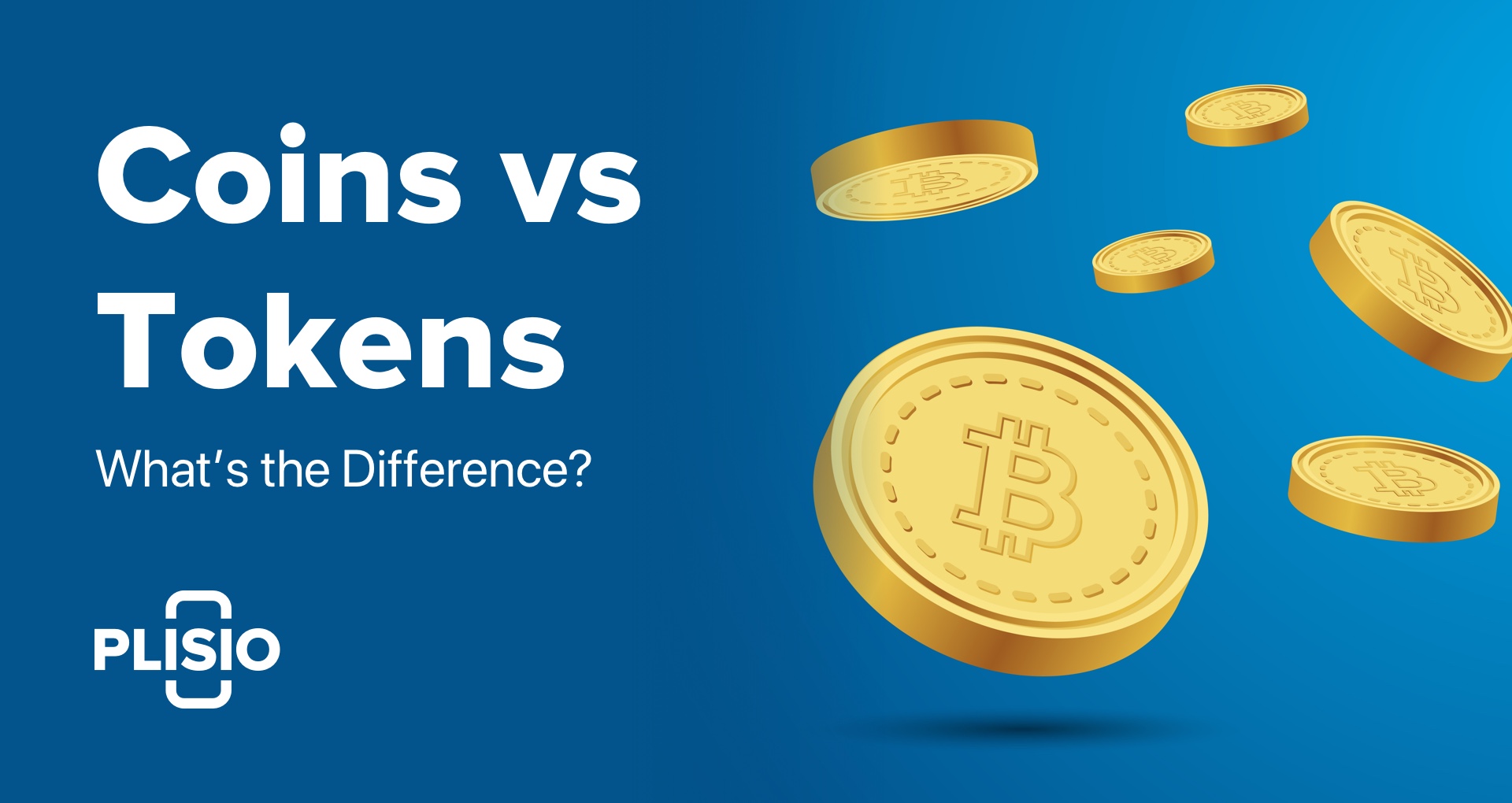Crypto Coins vs Crypto Tokens: What’s the Difference?

For the past two years, cryptocurrency has experienced a “boom” in popularity followed by thousands of people attracted to the industry. There are different types of cryptocurrency enthusiasts - investors who use a smart approach to managing their assets, and passersby who look to profit in the short term. Nonetheless, there is one thing that all crypto market players have in common - the majority of people still don’t know if they buy coins or tokens.
If you’re a cryptocurrency rookie, it is vital to differentiate between digital assets as knowing the basics might navigate you further. Even though coins and tokens are often used as synonyms, they are different in many ways.
What is a digital asset? This is an intangible asset that is traded and stored in a digital form. Both coins and tokens fall into this category.
Some people think that they are essentially the same thing as they are both intangible. However, the main difference between them is their utility. There are things that can be done with tokens and not coins, and on the contrary, some platforms accept only crypto coins. It is important to note that most crypto enthusiasts have both crypto coins and tokens in their portfolio.
Let’s review the basic differences between the two types of digital assets, so we could avoid the future confusion between the terms.
What Are Crypto Coins?
Being the blockchain network asset, crypto coins are issued by the blockchain protocol on which they run. Cryptocurrency has the following distinctive features:
Crypto coins operate on their blockchain. Cryptocurrency is native to its blockchain that monitors all transactions involving a certain coin. Crypto coins are used to buy, sell and store their value inside the network. What’s good about blockchain is that all transactions are encrypted and can be viewed by any member of the blockchain network who can enforce their rules inside the system. For example, Ethereum is a native coin to the Ethereum network, while a Bitcoin is a native coin to the Bitcoin network.
Crypto coins act as medium of exchange. Cryptocurrency was initially created to be a replacement for fiat. When Bitcoin was created, the blockchain technology enhanced anonymity and transparency encouraged the creation of other crypto coins like Ethereum or Litecoin. You can buy goods and services from some companies using crypto coins.
Bitcoin, for instance, is used as a legal tender in El Salvador and the Central African Republic. Crypto coins use cases keep evolving over time, so there is no telling what other surprises await us next. If you’re planning to use crypto as a medium of exchange for your small business or enterprise, setting up a cryptocurrency payment gateway is a great start. Plisio has a great crypto coins offer and a wide range of business tools for invoicing and bookkeeping.
Crypto coins can be mined. There are two traditional mining methods - Proof of Work and a more modern one, Proof of Stake. To boost Bitcoin gains, miners contribute their computing power and energy to produce more Bitcoins. The only problem is that there are less and less Bitcoin left to mine, so the process keeps getting more complicated. To multiply earning of coins like Cardano, PoS method is used, which means that miners contribute their actual coins to the network to stake Cardano and earn interest.
What Are Crypto Tokens
Crypto tokens can be considered value units of blockchain organizations that are built on top of already existing blockchains. Even though tokens are compatible with the native blockchain cryptocurrency, they are still a different kind of an asset.
Crypto tokens are spent differently. When a token is spent, it goes to another place. Non-fungible tokens, for example, change their ownership when they are bought so they must be manually managed. Crypcoins, in turn, do not need to move across places - the crypto coin transactions are stored on the blockchain.
Tokens rely on smart contracts. Different blockchains have a different number of smart contracts, which are various code arrangements that support transactions between users.
Token is a concept. When you sell a coin, you sell a fixed coin value. When you sell a token, you sell the value behind its name, which can vary, as is the case with NFTs. You cannot buy anything with the concept, but you can transfer the value behind it to another user.
Bottom Line
The crypto coins and tokens are not that drastically different, but being able to differentiate between them can spare some headache for investors. It is important to be mindful of what you’re buying and know what to expect of your assets.
With the crypto industry growing, there are more new digital assets being introduced to versatile needs of different participants of the blockchain ecosystem. Digital assets are much easier to create in comparison to the tangible ones of the real world, thus meeting the needs and changing the way countless numbers of industries operate and create business value.
If you want to invest in cryptocurrency or accept it for your business in order to grow it, join Plisio. Offering a wide range of crypto coins and tokens, the Plisio crypto payment gateway is a business growth oriented platform with the lowest fees on the market. If you want to multiply your business earnings, Plisio has a vast number of solutions to get started with.
